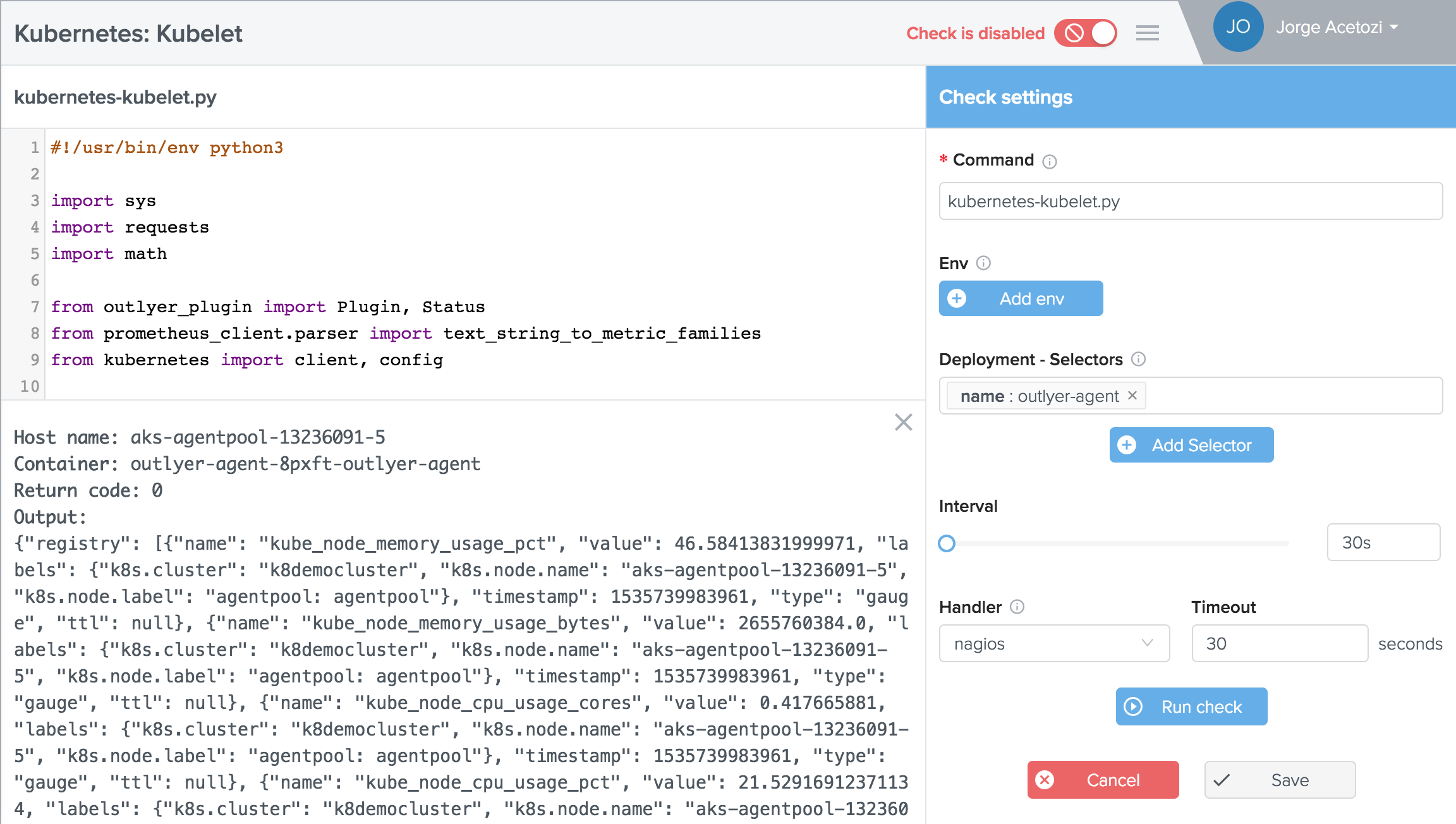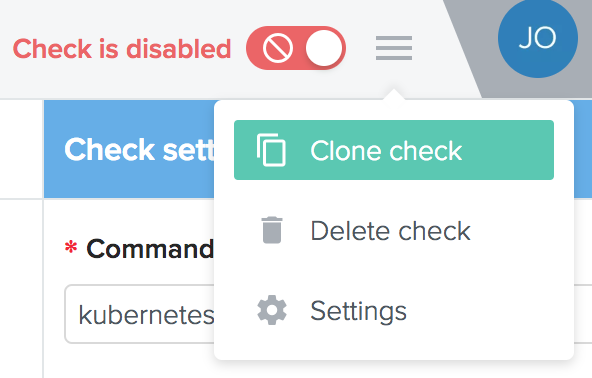Checks
Checks are used, as the name indicates, to check the status and the performance of a service. Checks are made up of:
- An executable command, which outputs data to STDOUT or STDERR, and returns a Nagios exit code to indicate the state.
- Some variables that are passed to the command as ENVIRONMENT VARIABLES when run.
- selectors to specify the hosts/containers to target with the check.
- and a format (or handler) to tell outlyer how to handle the data returned from the command
The command can be any executable, but usually, this would be a call to a plugin. One of the formats supported is Nagios, so you can take any existing Nagios plugin and use that.
In order to show the list of checks created in your account, click the Checks item on the left menu in Outlyer:

By clicking on a check in the list you will see the check details and will be able to edit, enable/disable, clone, and run it for testing purposes:

Running Checks from the UI
In order to preview the result of the check execution before actually enabling it on the top menu, you can simply click the Run check button, which will return the information about the selected host (or hosts), the plugin output code and the output data:

Enable / Disable a Check
As soon as you are confident with your check settings, you can enable it on the top menu:

Cloning
In certain situations, you might want to run the same plugin against different selectors or with different environment variables. Cloning is a convenient way to take advantage of your existing checks so you don’t need to rewrite the same plugin code unnecessarily. To clone a check, just click on Clone Check on the top menu:
